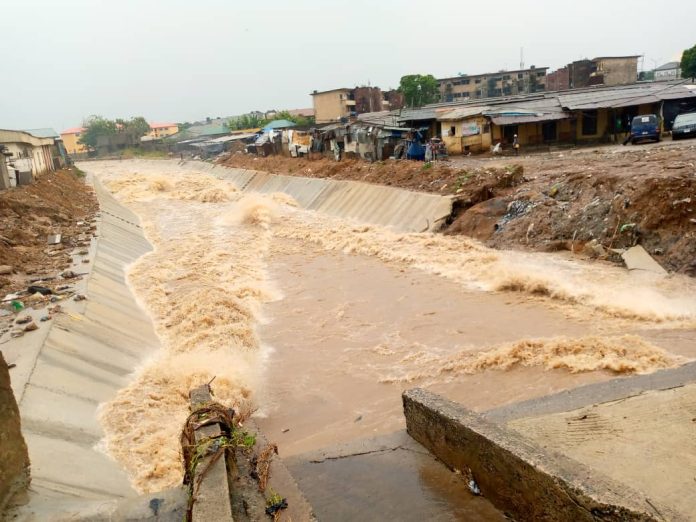FLOOD disaster is one of the tragic incidents pervading Nigeria annually over the past few years. The impact, seen as one of the effects of climate change, is unprecedented within the period under reckoning, with hundreds of lives lost and property worth billions of Naira destroyed along the line.
From 2012, when communities on the bank of the River Niger were submerged, forcing thousands to flee their homes, the challenge of flooding, either occasioned by flash floods or Rivers overflowing their banks, has persisted. Unfortunately, this does not come without leaving in its trail disasters that will linger in the minds of victims for a long time.
Starting from April this year, the National Emergency Management Agency (NEMA), the National Flood Early Warning Systems Centre of the Federal Ministry of Environment, and the Nigerian Hydrological Services Agency (NIHSA) have intermittently issued warnings urging residents of flood-prone areas to evacuate as the rains intensified.
A flood alert issued by NIHSA recently warned the riverine dwellers to brace up as no fewer than 198 local government areas and 32 states and the FCT will be affected by an impending flood in the country. The agency attributed the development to rising river levels and persistent rainfalls across the country. Besides, the agency also hinted that over 832 communities fell within the projected flood impact zone, in addition to major transportation routes suffering the same fate.
In the build-up to the projected flood, notable flash floods have already impacted some communities and states, with NEMA confirming 191 deaths, 94 missing persons, and 239 injuries. Also 49, 205 residents have been displaced, 10,663 houses damaged, and 9,454 farmlands affected in several communities by the flash flood.
Fortunately, Delta State has yet to record any major incident of flash floods, except in Okpe and Sapele local government areas, where hundreds of residents were recently affected. They are now in appreciable fair condition.
However, because of the geographical position of most local government areas of the state as Ndokwa East, Bomadi, Patani, Isoko South, Warri South West, Ughelli South, Oshimili South, Burutu, etc, the warning by the meteorological agencies must be considered during this period. Several local government areas of the state are riverine and prone to experiencing severe floods in the next few weeks. This might be occasioned by high-intensity rainfall, blocked drainage, and release of water from the Lagdo dam in Cameroon, which will likely affect those staying by the River Niger banks.
We acknowledge the ongoing steps involving flood control measures in some parts of the country, and the state in particular. However, the projects being carried out by the agencies of government in this regard may not suffice for the projected high rainfall as announced by NEMA and others.
Consequently, the Delta State Government, like others with similar circumstances, should activate measures that will address the flood, and even its aftermath, which in most cases is more severe than the flood, as many are denied food, medical care, or could face other humanitarian crises.
These measures include intensifying the clearing of canals, creating awareness among likely victims, setting up an Internal Displaced Persons (IDPs) camp, mobilization of health and social workers, and deployment of transportation (speed boats) for the evacuation of trapped victims.
On its part, the federal government and its agencies should go beyond the annual rhetoric of raising alarms without concrete steps to mitigate floods across the country. It is expected that the government should consider the capital dredging of the River Niger to open its bowel to receive more volume of water. Besides, dredging can attract some economic benefits as the sands can be sold to fill swampy areas, and for building structures.
There is also a need to construct decks and embankments in riverine communities to check coastal erosion accompanying floods and enhance transportation.
We commend the efforts of both the state and federal agencies in the build-up to the projected flood, but until the government undertakes a capital dredging of the River Niger and puts in place solid measures to checkmate floods, combating floods may remain an annual ritual.


